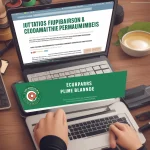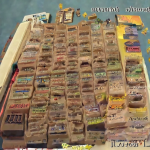A Comprehensive Guide to OFW Safety in High-Risk Zones
Introduction: Protecting Our Modern-Day Heroes
Overseas Filipino Workers (OFWs) are the backbone of the Philippine economy, contributing billions in remittances annually. However, many face significant risks when deployed to countries experiencing conflict, natural disasters, or other unstable conditions. This guide aims to provide OFWs with essential knowledge and resources to navigate these challenges, ensuring their safety and well-being while working abroad. From pre-departure planning to on-site safety protocols and post-incident procedures, this article offers actionable advice and real-life examples to help OFWs protect themselves in high-risk environments.
Consider the story of Maria, a domestic worker in Syria during the height of the civil war. Her pre-departure training, which included emergency contact information and evacuation procedures, proved crucial when she needed to seek refuge at the Philippine embassy. Or consider the experience of Carlos, a construction worker in Nepal during the 2015 earthquake. His knowledge of disaster preparedness for OFWs, learned through OWWA seminars, helped him and his colleagues survive the disaster and coordinate their evacuation.
These are just two examples of how preparation and knowledge can make a life-saving difference for OFWs in high-risk zones. Beyond individual stories, understanding the broader landscape of OFW safety abroad is crucial. The Department of Foreign Affairs (DFA) and OWWA play pivotal roles in providing OFW emergency assistance, especially for those working in conflict zones or disaster-prone regions. Recent trends indicate an increase in demand for skilled labor in the Middle East and parts of Asia, even in areas with known instability.
This necessitates a more robust approach to risk assessment and emergency planning. Government support programs for Overseas Filipino Workers are continuously evolving to address these challenges, offering pre-departure orientations, skills training, and financial assistance to ensure OFWs are better equipped to handle unforeseen circumstances. Access to accurate information and resources, such as updated contact details for the Philippine embassy and consulate, is paramount for OFW safety. Personal safety tips for OFWs extend beyond formal training.
It is imperative for OFWs to cultivate a network of trusted contacts, both within their workplace and the local Filipino community. Sharing location details with family and friends back home, maintaining regular communication, and being aware of local laws and customs are essential practices. OFWs should also familiarize themselves with the specific security protocols of their employment, including evacuation plans and emergency contact procedures. Moreover, staying informed about the political and social climate of their host country through reputable news sources can help them anticipate potential threats and make informed decisions.
The integration of technology, such as safety apps and communication platforms, can further enhance an OFW’s ability to seek help and stay connected during emergencies. Prioritizing mental well-being is also crucial, as stress and isolation can impair judgment and increase vulnerability. Effectively navigating OFW employment opportunities in high-risk zones requires a proactive and informed approach. Before accepting a job, OFWs should conduct thorough research on the employer, the working conditions, and the overall safety and security situation in the destination country.
Consulting with previous OFWs who have worked in the same region can provide valuable insights and firsthand accounts. It’s also crucial to scrutinize employment contracts, ensuring they include provisions for emergency situations, medical care, and repatriation. Furthermore, OFWs should be aware of their rights and responsibilities as foreign workers and understand the legal protections available to them in their host country. By taking these proactive steps, OFWs can mitigate potential risks and make informed decisions about their employment opportunities abroad, ultimately prioritizing their safety and well-being.
Pre-Departure Preparation: Risk Assessment and Emergency Planning
Before embarking on an overseas assignment, thorough preparation is paramount for OFW safety abroad. This includes a comprehensive risk assessment of the destination country, considering not only broad factors like political stability and crime rates, but also nuanced aspects such as specific industry risks and potential employer-related issues. For example, OFWs seeking employment in construction in politically unstable regions should investigate the employer’s track record regarding worker safety and adherence to labor laws. Likewise, those pursuing domestic work should research the cultural norms and legal protections available in that specific country.
Understanding these details is crucial for ensuring OFW safety. Emergency planning is equally crucial, particularly for Overseas Filipino Workers (OFWs) working in conflict zones or disaster-prone regions. Develop a detailed emergency plan that includes multiple evacuation routes, pre-identified safe houses (vetted through reliable sources), and redundant communication protocols. Share this plan not only with family members and friends but also with co-workers and community leaders in the host country. Consider practical drills to simulate emergency scenarios.
Disaster preparedness for OFWs also means preparing a ‘go-bag’ with essential supplies like water, non-perishable food, a first-aid kit, copies of important documents, and a portable power bank. Establishing reliable communication channels is vital for OFW emergency assistance. Designate a primary and secondary contact person in the Philippines who can be reached in case of emergency, and ensure they have copies of your employment contract, passport, and other essential documents. Family members should also know how to directly contact the Philippine embassy or consulate in the host country, as well as relevant agencies like OWWA and DFA.
Utilize communication apps like Viber, WhatsApp, and Messenger to stay connected, but be mindful of potential surveillance or censorship in certain regions. Consider using encrypted messaging apps for sensitive communications. Always be aware of the local laws regarding communication and avoid sharing information that could compromise your safety or the safety of others. Actionable Checklist for OFW safety: 1. Research the destination country’s risk profile using resources like the U.S. State Department travel advisories, the Philippine Department of Foreign Affairs (DFA) website, and reports from international organizations. 2.
Create a detailed emergency plan with evacuation routes and safe houses, considering various scenarios. 3. Designate primary and secondary emergency contacts in the Philippines and provide them with all necessary information. 4. Register with the Philippine embassy or consulate in the host country and actively participate in any pre-departure orientations or safety briefings. 5. Download and familiarize yourself with emergency communication apps, and learn how to use them securely. 6. Investigate available Government Support Programs for Overseas Workers, including insurance and repatriation assistance, to understand what resources are available in case of an emergency. Remember that proactive risk assessment and emergency planning are fundamental to ensuring OFW safety abroad.
On-Site Safety Protocols: Identifying and Avoiding Threats
Once on-site, OFWs must remain vigilant and proactive in ensuring their safety. This involves identifying and avoiding potential threats, securing accommodations, and respecting local customs. Be aware of your surroundings and avoid high-crime areas, political rallies, and other potentially dangerous situations. Trust your instincts and remove yourself from any situation that feels unsafe. Secure your accommodations by ensuring that doors and windows are properly locked. Consider installing additional security measures, such as security cameras or alarm systems.
Be mindful of local customs and traditions. Dress modestly, avoid public displays of affection, and refrain from engaging in activities that may be considered offensive or disrespectful. Navigating Local Customs: In some cultures, direct eye contact may be considered rude or aggressive. In others, bargaining is expected when shopping. Research local customs and traditions before your departure to avoid misunderstandings and potential conflicts. Real-Life Example: A group of Filipino engineers working in Libya were able to avoid a kidnapping attempt by recognizing the signs of a potential threat and altering their route.
Their vigilance and awareness of their surroundings proved crucial in ensuring their safety. Beyond individual vigilance, OFWs should actively participate in any safety briefings or training programs offered by their employers or the Philippine Overseas Labor Office (POLO). These sessions often provide invaluable insights into local security protocols, emergency evacuation plans, and contact information for relevant authorities. For instance, OWWA (Overseas Workers Welfare Administration) frequently conducts pre-departure orientations that include modules on personal safety and security awareness, specifically tailored to the destination country.
Understanding the specific risks associated with your job and location is paramount for OFW safety abroad, especially when working in conflict zones or disaster-prone regions. These programs also highlight the importance of maintaining regular communication with family and the Philippine embassy, providing updates on your well-being and location. Securing accommodations goes beyond just locking doors and windows; it involves assessing the overall safety of the living environment. Consider factors such as the building’s security features, the neighborhood’s crime rate, and the proximity to essential services and emergency facilities.
OFWs might explore options like gated communities or apartments with security personnel, even if it means a slightly higher cost. In some instances, employers may provide housing, but it is still crucial to independently verify the safety measures in place. Furthermore, familiarity with local emergency numbers and the location of the nearest Philippine embassy or consulate is a critical aspect of emergency preparedness for OFWs. Keep copies of important documents, such as your passport and work visa, in a secure and accessible location, both physically and digitally.
Leveraging available government support programs can significantly enhance OFW safety. The DFA (Department of Foreign Affairs) provides consular assistance to Filipino citizens abroad, including those facing emergencies or distress situations. Familiarize yourself with the services offered by the Philippine embassy in your host country, such as emergency contact information, legal assistance, and repatriation support. In times of crisis, the embassy serves as a crucial lifeline, providing guidance and resources to help OFWs navigate challenging circumstances. Knowing your rights as an overseas worker and understanding the protections afforded to you under Philippine law can also empower you to advocate for your safety and well-being. The Migrant Workers Act, for example, outlines specific responsibilities of recruitment agencies and employers to ensure the safety and fair treatment of OFWs. Staying informed and proactive are key components of ensuring OFW safety and security in high-risk zones.
Post-Incident Procedures: Reporting and Seeking Assistance
In the unfortunate event of an incident impacting OFW safety abroad, swift and decisive action is paramount. Immediately report the incident to local law enforcement, securing a formal police report, which serves as critical documentation for insurance claims, legal proceedings, and potential investigations by the Philippine government. Following this, contact the Philippine embassy or consulate in the host country without delay. These diplomatic missions are equipped to provide crucial OFW emergency assistance, including legal counsel, medical support, repatriation assistance, and guidance on navigating the local legal system.
The Department of Foreign Affairs (DFA) operates a 24/7 hotline to provide immediate support to Overseas Filipino Workers (OFWs) facing emergencies abroad. Beyond immediate reporting, thorough documentation is essential. Capture all relevant details, including the date, time, precise location, and a comprehensive account of the events that transpired. If it is safe to do so, supplement your written account with photographic or video evidence, as visual documentation can significantly strengthen your case. Remember that accurate and detailed records are invaluable when seeking compensation, pursuing legal action, or accessing government support programs for overseas workers.
According to OWWA data, documented cases have a significantly higher success rate in receiving aid and compensation. Furthermore, remember that resources extend beyond governmental channels. Seek support from organizations like the Overseas Workers Welfare Administration (OWWA) and reputable non-governmental organizations (NGOs) specializing in OFW welfare. OWWA provides a range of services, including counseling, legal assistance, and financial aid, while NGOs often offer specialized support tailored to specific needs, such as assistance for victims of human trafficking or those working in conflict zones.
Prioritize your mental and emotional well-being during this challenging time. Working in high-risk zones and experiencing traumatic incidents can have lasting psychological effects. Access mental health resources through OWWA or seek professional counseling to address any anxiety, depression, or post-traumatic stress symptoms. Remember, seeking help is a sign of strength, not weakness, and is crucial for your long-term recovery and well-being. Disaster preparedness for OFWs includes knowing evacuation routes and emergency contact information. Emergency planning is a key aspect of OFW safety.
Specific Challenges: Conflict Zones vs. Disaster-Prone Regions
OFWs in conflict zones face unique challenges, including the risk of violence, kidnapping, and displacement. It is crucial to stay informed about the security situation and follow the advice of local authorities and the Philippine embassy or consulate. Disaster-prone regions present different challenges, such as earthquakes, typhoons, and floods. OFWs in these areas should familiarize themselves with disaster preparedness measures and evacuation procedures. Tailored Advice for Conflict Zones: 1. Avoid traveling to dangerous areas and stay indoors as much as possible. 2.
Stock up on essential supplies, such as food, water, and medicine. 3. Establish a communication plan with family members and the Philippine embassy or consulate. Tailored Advice for Disaster-Prone Regions: 1. Familiarize yourself with evacuation routes and safe shelters. 2. Prepare a disaster preparedness kit with essential supplies. 3. Monitor weather forecasts and heed warnings from local authorities. Real-Life Example: During the 2011 Libyan civil war, the Philippine embassy in Tripoli successfully evacuated thousands of OFWs to safety.
This was achieved through careful planning, coordination with local authorities, and the cooperation of the OFWs themselves. Working in conflict zones demands heightened awareness and proactive measures to ensure OFW safety abroad. Beyond heeding the advice of local authorities, Overseas Filipino Workers should leverage resources provided by the Philippine government, such as pre-departure orientations that offer specific training for high-risk zones. The DFA (Department of Foreign Affairs) and OWWA (Overseas Workers Welfare Administration) offer crucial support, including emergency contact information and assistance with repatriation.
OFWs should register with the Philippine embassy upon arrival, enabling efficient communication and support during crises. A robust emergency planning strategy, including identifying safe houses and establishing communication protocols with family, is paramount for OFW safety. Disaster preparedness for OFWs in disaster-prone regions necessitates a comprehensive understanding of potential hazards and effective response strategies. OFWs should actively participate in disaster preparedness training programs, often provided by local authorities or NGOs, to learn essential skills like first aid and evacuation procedures.
A well-stocked disaster preparedness kit, including non-perishable food, water, medications, and a battery-powered radio, is crucial. Monitoring weather forecasts from reliable sources and adhering to evacuation orders issued by local authorities are vital for minimizing risk. Furthermore, understanding the specific vulnerabilities of their accommodation and workplace, and identifying safe zones within these environments, can significantly enhance OFW safety. In situations demanding OFW emergency assistance, the Philippine government, through its embassies and consulates, plays a pivotal role in providing support and facilitating safe passage.
The OWWA operates a 24/7 hotline for OFWs needing immediate assistance, offering guidance and coordinating with relevant agencies. Case studies, such as the evacuation of OFWs during the Syrian civil war, highlight the importance of proactive diplomacy and logistical planning in ensuring the safety of Filipino workers abroad. The Philippine embassy serves as a crucial communication hub, disseminating vital information and coordinating evacuation efforts. OFWs should maintain regular contact with the embassy, providing updates on their location and any potential risks they face, to ensure they can be effectively reached in times of crisis. Such measures are critical for bolstering OFW safety in high-risk zones.
Conclusion: A Collective Responsibility for OFW Safety
The safety and well-being of OFWs in high-risk zones depend on a multi-faceted approach encompassing thorough preparation, unwavering vigilance, and readily accessible resources. By diligently adhering to the advice and guidelines detailed in this comprehensive guide, Overseas Filipino Workers (OFWs) can significantly mitigate potential harm and substantially increase the likelihood of a safe return home. The Philippine government, through its dedicated agencies such as the Department of Foreign Affairs (DFA) and the Overseas Workers Welfare Administration (OWWA), assumes a pivotal role in safeguarding OFWs abroad, offering crucial emergency assistance and support programs.
However, the ultimate responsibility rests with each individual OFW to proactively prioritize their own safety through informed decision-making and adherence to safety protocols. This includes actively participating in pre-departure orientations, understanding the specific risks associated with their destination, and maintaining consistent communication with both their employers and Philippine representatives. Let us not forget the immense sacrifices made by OFWs and renew our commitment to providing them with the unwavering support and essential resources they require to thrive, even amidst challenging and unpredictable environments.
By fostering a collaborative environment, we can collectively strive towards a safer and more secure future for our modern-day heroes. Beyond governmental support, a critical aspect of ensuring OFW safety abroad lies in comprehensive emergency planning and risk assessment. OFWs working in conflict zones or disaster-prone regions must develop detailed contingency plans that address various potential scenarios, including political instability, natural disasters, and health emergencies. These plans should encompass evacuation strategies, communication protocols, and access to essential supplies.
Furthermore, OFWs should proactively research available OFW emergency assistance programs offered by both government and non-government organizations, familiarizing themselves with the procedures for seeking help in times of crisis. For example, understanding the role of the Philippine embassy in providing consular assistance, legal aid, and repatriation support is paramount for OFWs navigating challenging circumstances. Regular communication with family members and designated contacts in the Philippines is also vital for maintaining a support network and ensuring timely assistance in case of emergencies.
Moreover, fostering a culture of personal safety awareness is crucial for OFWs, particularly those working in high-risk zones. Equipping OFWs with practical personal safety tips, such as avoiding high-crime areas, being mindful of their surroundings, and respecting local customs, can significantly reduce their vulnerability to potential threats. Training programs focusing on conflict resolution, self-defense techniques, and situational awareness can empower OFWs to navigate potentially dangerous situations with confidence and resilience. Additionally, promoting access to mental health support services is essential for addressing the psychological impact of working in stressful and potentially traumatic environments. By prioritizing both physical and mental well-being, we can help OFWs maintain their overall health and effectively cope with the challenges they may encounter. Relevant Government and Non-Government Resources: 1. Philippine Department of Foreign Affairs (DFA): www.dfa.gov.ph 2. Overseas Workers Welfare Administration (OWWA): www.owwa.gov.ph 3. U.S. State Department Travel Advisories: travel.state.gov 4. International Organization for Migration (IOM): www.iom.int


